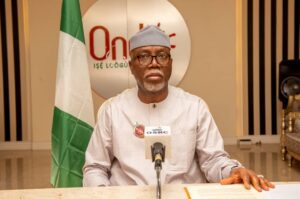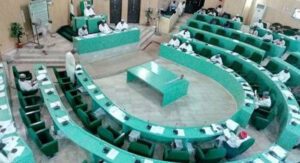World Bank to restructure $200m IDEAS project in Nigeria
…Cancels, completes activities in project restructuring effort
By Sodiq Adelakun
The Innovation Development and Effectiveness in the Acquisition of Skills (IDEAS) Project in Nigeria, which was launched with a funding of $200 million, is set to undergo significant changes to improve its effectiveness.
The World Bank has announced plans to restructure the project, which has faced challenges in meeting its objectives. The project was approved in February 2020 to enhance the capacity of the Nigerian skills development system to produce relevant skills for the formal and informal sectors.
However, only $34.88 million has been released by the World Bank due to the poor performance of the project. The release of further funds is tied to meeting certain project criteria.
The IDEAS project, which aimed at enhancing skills acquisition in Nigeria, has shown limited progress in several key areas over the past two years.
Component 1 of the project, which focused on providing grants to federal and state colleges, was particularly affected, with unsatisfactory ratings due to incomplete workshop renovations and delayed equipment procurement.
Component 2, targeting the training of master craftspersons and apprentices, also recorded slow progress. Although other project components showed some improvement, they were still limited in scale.
The report read: “The Mid-Term Review (MTR) mission for the Project took place between October 3-28, 2023. The mission held meetings with the Federal Ministry of Education (FME), the six participating states (Abia, Benue, Edo, Ekiti, Gombe and Kano) and the selected federal and state technical colleges (TCs).
“The mission assessed the reasons for which the project has not performed as envisaged and identified adjustments and changes in project design, implementation arrangements, and resource allocations so that the project could remain relevant, be implemented effectively, and contribute to the country’s goal to produce skilled manpower for the formal and the informal sector.
“The progress towards the Project development objectives and overall implementation progress has remained slow for about two years with limited progress on each component. Component 1 providing grants to federal and state colleges continues to be rated unsatisfactory due to limited in the strengthening of technical education in priority trades.
“Workshop renovations are incomplete for 101 out of 114 targeted trades, and equipment procurement is lagging. Component 2, training master craftspersons and apprentices, is moderately unsatisfactory with slow progress. Component 3 has improved, rated moderately satisfactory, with training initiated for Technical Teachers and Instructors. Component 4 progress is moderately satisfactory, but at a limited scale.
“The project will undergo restructuring to address scalability and sustainability issues. The restructuring involves completing some activities, cancelling others, and implementing a results-based contracting fund to focus on skills training and employment for Nigerian youth.
“This fund aims to provide scalable and cost-effective skills training in priority trades, linking trainees with employers, and ensuring placement in wage employment or support for self-employment.”
In response to these setbacks, the World Bank’s restructuring of the project will involve significant adjustments. Some activities will be completed, while others will be cancelled.
A notable change is the introduction of a results-based contracting fund, which will concentrate on providing scalable and cost-effective skills training for Nigerian youth. This initiative aims to link trainees with employers, ensuring their placement in wage employment or supporting self-employment opportunities.
The restructuring process, expected to be finalised by March 2024, will also see a revision of the results framework. This includes modifying the intermediate indicators and their targets.
The restructured project will emphasise results-based contracting with both private and public service providers. These providers will be responsible for training and finding job placements for youth on a large scale, with new results indicators and targets developed to match this revised approach.
The report read: “As per MTR discussions and agreements, the project will be restructured. Accordingly, the results framework – the indicators and their targets will be revised. Because the current project activities will be wound down, both the PDO and the intermediate results indicator targets will be adjusted downwards as appropriate at project restructuring which is expected to be processed by March 2024.
“The restructured project will be built around results-based contracting of private and public service providers to train and find job placement for youth at scale – the appropriate results indicators and targets will be developed at the processing of project restructuring in March 2024.”
The World Bank’s decision is considered a crucial measure in tackling the challenges of scalability and sustainability that have impeded the project’s progress.




